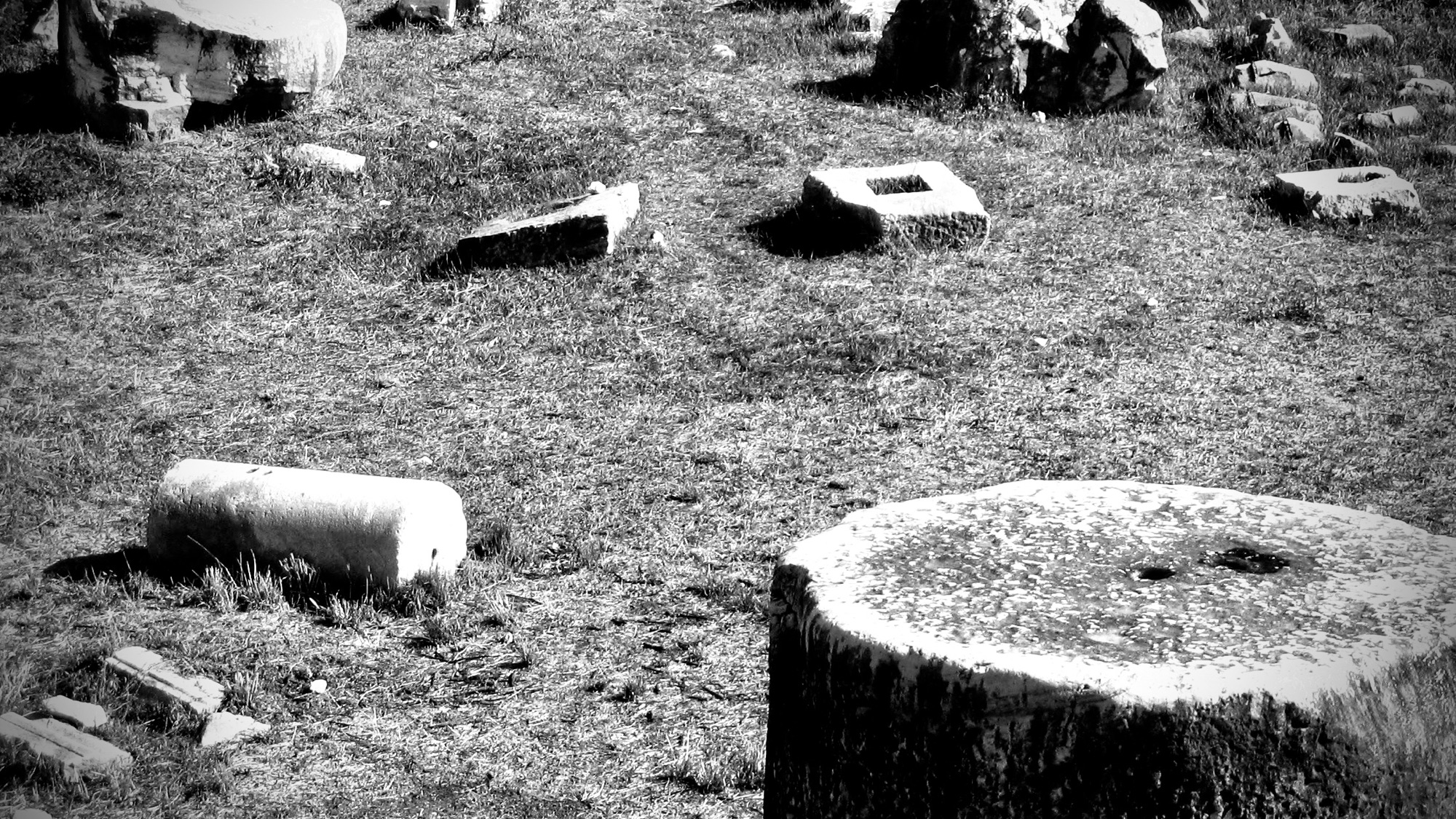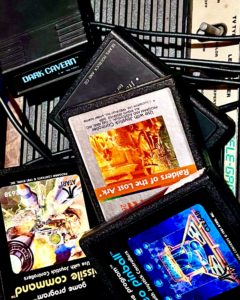“Get rid of it all,” said the owner of the house, a man named Hartford, who had purchased it at a foreclosure sale only a few weeks past. “Every last tree and root and rock. No stone unturned, and I mean it!”
The Bobcat rumbled across the uneven ground like a thing possessed, crushing saplings and downed branches into the mud, carving tracks and trenches across the yard, weaving in and out of great granite boulders. These the workers levered out of the earth and stacked in neat piles, or nestled them against the ancient stone fence that separated the yard from the neighbors. The sawdust from trees cut down the week before mixed together with dirt and old leaves, making a hash of green and brown that they supposed would be good for the grass, once it was planted.
All this the owner watched from the upstairs picture window that overlooked the yard. His face looked impassive from afar, but the workers soon found an air of malevolence lurking beneath, and learned quickly to avoid him unless absolutely necessary. There was something off-putting and sinister about him; he could be heard muttering as he stalked about, and sometimes he spat the name “Whitney!” under his breath while watching the goings-on.
As far as the workers knew, they were flattening the old wooded lot into something a family could enjoy. But for any comment about a proper wide space for having a catch or whether they should leave a stump to serve as home plate for kickball or a base for tag, all were met with a grunt or a “hmph” by way of acknowledgement. After a point, even this gave way to “What am I paying you for?” and “Get back to work!” So they stopped.
Eventually, so did the work, as the ground was as flat as could be without paving the whole thing. There was by this time enough discomfort if not outright fear that no one bothered to ask what was next for the lot, and the workers scampered for their trucks as the final papers were signed and cash distributed in unmarked envelopes.
One of the workers, taking notice that his work gloves were missing, turned back from halfway down the street and made to retrieve them. He rounded the corner of the house to find a bizarre scene unfolding: the owner was pouring bags of salt into a spreader, then wheeling the thing up and down the yard, turning the brown earth to patchy white and muttering, “I’ll show you, Joseph Whitney, you sumbitch! At long last, on my great-great-grandfather’s name, I’ll show you how we keep our promises! Though the oceans themselves turn to freshwater, still I’ll sow your lands with salt! Not a root or leaf will grow here again, not while I have anything to do with it!”
The worker stood frozen, watching. He quickly decided that he was due for a new pair of gloves anyway, and turned back around and hurried off. Behind him, he heard the owner’s voice loudening to a roar: “Your lands are mine, now, Whitney, mine at last, a Hartford’s, and they’ll lie fallow until the end of time! Four generations gone, but James Hartford and all Hartfords finally have our revenge! A Hartford never forgets!” While all around, the earth grew white as snow.



